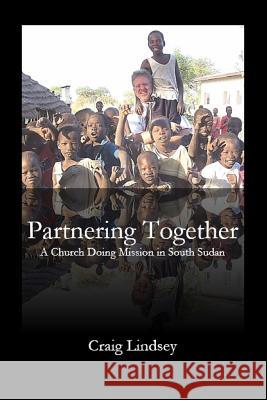Partnering Together: A Church Doing Mission in South Sudan » książka
Partnering Together: A Church Doing Mission in South Sudan
ISBN-13: 9781946478009 / Angielski / Miękka / 2016 / 144 str.
This is a story of people acting in faith. At the time this story began, First Presbyterian Church, like most religious congregations in America, was struggling with identity, seeking to make a difference in the world. There were no plans or definitions at the US State Department, in Sudan, in the Presbyterian Church USA as a denomination, or in Skaneateles, NY for what needed to be done in South Sudan by whom, how, at what cost. All that was known, was that there were open questions. Except for a dozen years, civil war had been perpetuated from 1956 until 2016, in an extremely poverty-stricken, remote and undeveloped corner of the Sub-Saharan part of the South Sudan portion of East Africa between the two Nile Rivers. Not only was the population impoverished, and at risk due to isolation's lack of inoculations, they had no infrastructure for getting supplies, no roads to get there, there was not yet any legitimate government recognized with which to gain access to information or permission. Environmental conditions limited any access to six months each year; all knowledge of locations, resources, conditions and people, were anecdotal from child refugees who had escaped these circumstances in a time of trauma. The leadership of First Presbyterian Church had no agenda for involvement in this mission. We were asked to provide resources for sponsorship of refugees for a limited time, but that relationship of trust has become a partnership, a faith Calling.
This is a story of people acting in faith. At the time this story began, First Presbyterian Church, like most religious congregations in America, was struggling with identity, seeking to make a difference in the world. There were no plans or definitions at the US State Department, in Sudan, in the Presbyterian Church USA as a denomination, or in Skaneateles, NY for what needed to be done in South Sudan by whom, how, at what cost. All that was known, was that there were open questions. Except for a dozen years, civil war had been perpetuated from 1956 until 2016, in an extremely poverty-stricken, remote and undeveloped corner of the Sub-Saharan part of the South Sudan portion of East Africa between the two Nile Rivers. Not only was the population impoverished, and at risk due to isolation's lack of inoculations, they had no infrastructure for getting supplies, no roads to get there, there was not yet any legitimate government recognized with which to gain access to information or permission. Environmental conditions limited any access to six months each year; all knowledge of locations, resources, conditions and people, were anecdotal from child refugees who had escaped these circumstances in a time of trauma. The leadership of First Presbyterian Church had no agenda for involvement in this mission. We were asked to provide resources for sponsorship of refugees for a limited time, but that relationship of trust has become a partnership, a faith Calling.











